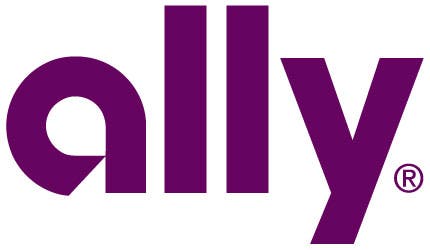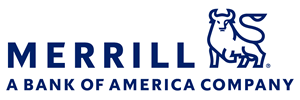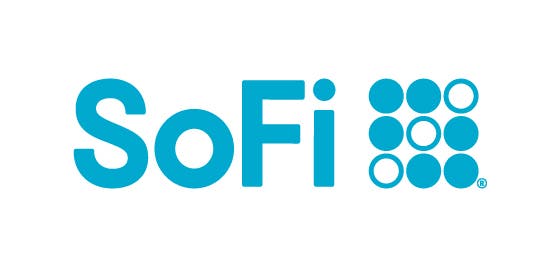Charles Schwab review
The Bankrate promise
At Bankrate we strive to help you make smarter financial decisions. While we adhere to strict , this post may contain references to products from our partners. Here's an explanation for .
Charles Schwab performs consistently well in Bankrate’s annual reviews of the top brokers, and it continues to feature one of the best brokerage offerings out there. The broker does the basics right for all types of investors — with no-commission trades on stocks and ETFs, as well as thousands of no-transaction-fee mutual funds. Schwab’s integration of the thinkorswim trading platforms as part of its takeover of onetime rival TD Ameritrade should appeal to advanced traders, too. Schwab also offers a solid suite of research and education on its site, both of which should interest both new and advanced investors.
Investors looking for other top players should be sure to check out Fidelity Investments and Interactive Brokers, both of which score highly in our reviews. Compare low-cost offerings such as Robinhood with those from Schwab to see how they stack up, especially when it comes to research and customer support.
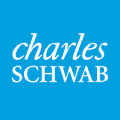
We want to know what you think about Charles Schwab
Do you have experience with Charles Schwab? Let us know your thoughts.
Overview of Charles Schwab
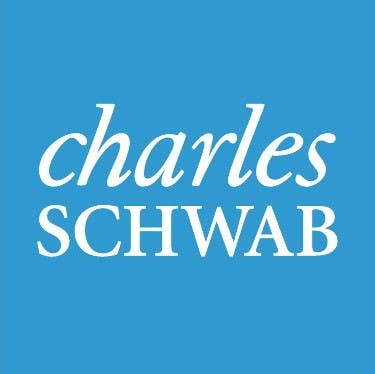
Overview
Charles Schwab is a great all-around broker, whether you’re just getting started investing or are more advanced, and it can bring the heat on almost anything you’re likely to need. Add on strong customer support, a wide investment selection, no-commission mutual funds, along with tons of research, and you have the makings of a five-star broker.
- Overall experience
- Research
- Customer support
Pros: Where Charles Schwab stands out
Trading fees and account types
Schwab charges $0 for stock and ETF trades and $0.65 per contract for options. You could find cheaper options commissions if you wanted to skimp on some key features such as research, customer support or fee-free funds. But Schwab’s commissions are competitive and more than reasonable for all the value you’re getting. Plus, there’s no account minimum, so it’s incredibly easy to get started.
Schwab also offers nearly any account type you can imagine: Individual, joint, IRAs, education savings accounts, 529 education accounts, business accounts such as the SEP IRA and solo 401(k), as well as trust and charitable accounts, among many others. As your financial needs grow, Schwab is going to be able to accommodate your requirements.
No-commission funds
Mutual fund investors should be happy with Schwab’s offerings — with around 7,500 funds available without a sales load. Investors in mutual funds should generally be looking to avoid sales loads since they’re a dead loss, and Schwab gives you plenty of solid fund choices.
But it goes one better, offering roughly 4,100 funds with no load and no transaction fee, meaning you’ll buy and sell without a commission. It’s another way that Schwab is so investor-friendly.
Fractional shares
Schwab has a great feature for newer investors, allowing you to put all your money to work in an investment, even if you can’t afford a full share (which is a real possibility with some high-flying tech stocks.) It’s called Stock Slices, and it lets you buy any stock in the Standard & Poor’s 500, which is an index of America’s 500 or so largest companies.
You can buy a slice of any of the index’s stocks for as little as $5, and you can buy up to 30 slices in total at a time. For example, if you wanted to buy 10 slices of various stocks, you’d have to have at least $50. But if you want to invest just $25, you could max out at five slices in total or pick just one or two. The Schwab trade interface is easy to use, allowing you to input all your transactions at once and then click the trade button once — a clear upgrade from Fidelity’s clunky interface for purchasing fractional shares. This program enjoys Schwab’s no-commission structure on stock trades, too.
However, the clear disadvantage at Schwab is that you’re limited to those 500 or so S&P 500 stocks, whereas rivals such as Fidelity and Interactive Brokers allow you to purchase thousands of stocks on a fractional basis. Hopefully, Schwab expands this program to include more than just S&P 500 companies. Besides purchasing fractional shares, at Schwab you’ll also be able to reinvest dividends in partial shares.
Research
Schwab is great at providing investors with what they need to know, both in terms of research and all the tools the broker offers.
Clients receive earnings news from Reuters, Briefing.com and others, while Schwab also provides market commentary from Morningstar, Argus and CFRA. Those investors looking for research on specific stocks will find Schwab’s in-house analytical work, including Schwab Equity Ratings for evaluating a stock’s performance, as well as other third-party reports.
Fund investors can access the Morningstar rating for each mutual fund, while ETF traders can trawl through the offerings efficiently with Schwab’s ETF screener and ETF Select List, a guide to the broker’s top picks. It’s a quick way to sift through the fund universe for what you really want, and the screener helps you find low-cost funds quickly. And the screener can even help you find which funds are engaged in socially responsible investing, if that’s what you’re looking for.
Fixed-income traders can pore through tens of thousands of offerings with Schwab BondSource, a screener that includes ratings from Standard & Poor’s and Moody’s.
High-quality trading platforms
Schwab offers a pair of trading platforms as well as a mobile app, so you’ll have the means to trade wherever you are.
Schwab.com web trader: The broker’s entry-level platform does plenty. In addition to all of the basic features, the platform keeps tabs on major indexes and watch lists, can pull up a company’s financials and trading data, and can access options chains and analyze trends. The all-in-one trade ticket allows you to make simple stock trades and even complex options trades from one interface. If you need even more, you can step up to thinkorswim.
Schwab thinkorswim: Thanks to its acquisition of TD Ameritrade, Schwab now offers customers the thinkorswim trading platform. The thinkorswim platform is available in desktop, mobile and web form and offers a customizable trading experience that is highly respected by experienced traders. You’ll get advanced charting with hundreds of technical indicators to help you explore different trading strategies, and you can even watch live financial news.
Beyond just the trading platforms, Schwab clients pointed to the easy-to-use site and ability to get your tasks done efficiently. A Reddit user shared: “Schwab’s site is very clean, fast, and capable of doing quite a bit without having to speak to someone or fill out forms…. The fact that they have the best customer service is an added bonus.”
Mobile app
The broker offers two mobile experiences — Schwab Mobile and the thinkorswim mobile app — depending on what you need.
Schwab Mobile provides the core functionality of the broker’s web trader and you’ll be able to securely access your accounts with industry-standard encryption. The app allows you to place trades (including multi-leg options) and monitor your portfolio, access news and real-time market data and check out stock charts. You can deposit checks into your brokerage or Schwab bank accounts, and the app is integrated with Apple Watch, too. On top of this, you can access many of the app’s functions with voice commands via the virtual assistant. You can trade, check your portfolio, deposit checks and set alerts, among other features.
The thinkorswim app tries to move a lot of the functionality from its higher-powered desktop version to the mobile app. You’ll be able to trade stocks, ETFs, options and even futures and forex. Of course, the app includes watch lists and live market news, but it also includes charting functionality and allows you to watch CNBC on a livestream.
Customer support
It might be a dark and stormy night, but Schwab’s customer support team is going to be open to take your call. Not only does the Schwab team take calls 24 hours a day, seven days a week, but it’s also available for online chats and email around the clock, too. It’s hard to do better than that.
You can always send an email, or you can stop by one of the more than 400 Schwab branches if you need more personal assistance. This physical presence is an advantage that Schwab has over online-only brokers such as Webull, Robinhood or Interactive Brokers.
Schwab customers also highlight their strong support, especially when it comes to the non-routine issues. A reader on Bogleheads stated: “I've been blown away by Schwab's customer service - and we needed it during a particularly tricky partial rollover due to the summary plan description of the 401k. And, for me personally, I find the website easier to navigate and more visually helpful compared to Fidelity.”
Integration with the rest of Schwab
One of the benefits of going with a powerhouse such as Schwab is the ability to conduct nearly all your financial business under one roof. If you’re looking to expand your relationship from just a brokerage account to a bank account, you can have that set up in minutes on the Schwab site. You’ll get a highly regarded bank account and still enjoy the company’s top-notch customer service.
Or if you’re looking for a robo-advisor to manage your portfolio for you, the company can handle that with Schwab Intelligent Portfolios service. And the kicker? The company doesn’t charge any management fee (just the small fees for any funds it places you in). If you want more specialized assistance from a certified pro, you can opt for a very reasonable monthly fee.
And you’ll still have access to Schwab’s physical branches if you need a specific question answered or you prefer to conduct your business in person.
Cons: Where Charles Schwab could improve
Transfer-out fees
With all the other investor-friendly advantages at Schwab, it feels nitpicky to target the broker’s fees for transferring out your account. A partial transfer is now free (down from $25 before), while a full transfer will cost you $50. Although Schwab is generally good about not hitting you up for fees here and there, that’s not really the case with transfer fees. Key rival Fidelity somehow manages to get away without charging those fees, so Schwab probably could, too.
Investment options
Schwab’s investment choices — stocks, ETFs, bonds, mutual funds, futures, forex — will suffice for plenty of its customers. Those looking for a little extra, such as direct trading in cryptocurrency, will need to turn elsewhere.





